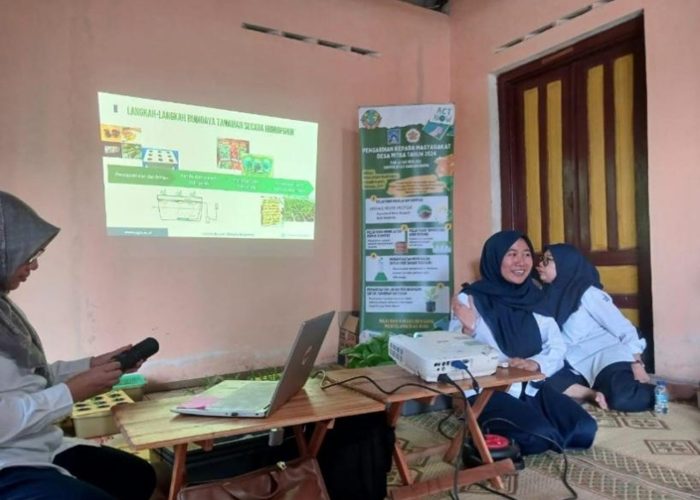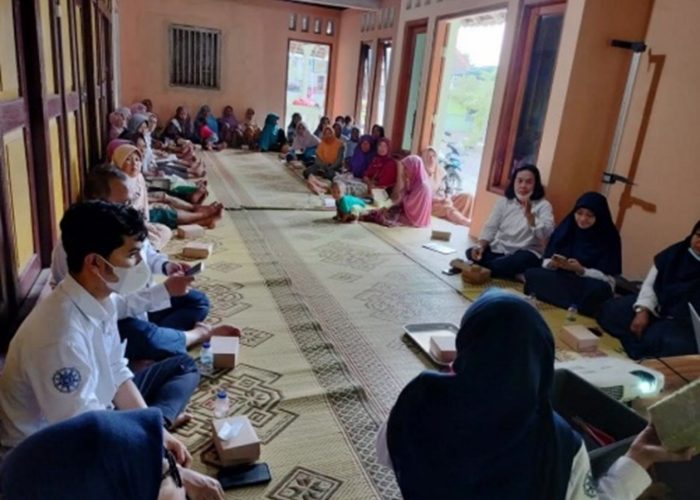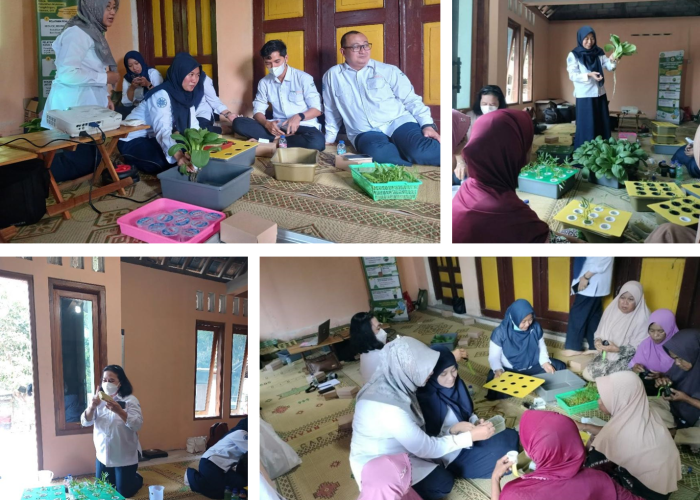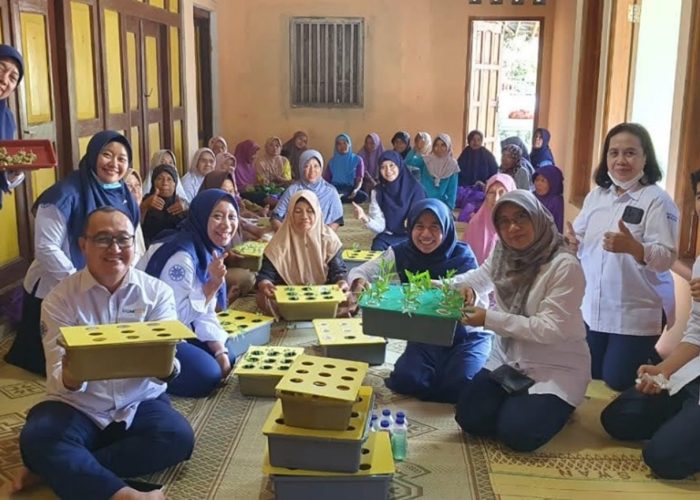On Monday, August 26, 2024, a community service event was held in Wukirsari Village, Cangkringan District, Sleman Regency. Wukirsari Village Partner was one of the nine villages mentored by the UGM Faculty of Biology in 2024. The event was opened and moderated by Dr. Maryani, M.Sc., with remarks from Dr. Eko Agus Suyono, S.Si., M.App.Sc., a representative from the Mitra Wukirsari Village Team. The main training material was presented by Prof. Dr. Diah Rachmawati, S.Si., M.Si., on the topic of the Potential & Prospects of Hydroponic Vegetable Cultivation. Hydroponics is a plant cultivation technique that uses water as a medium instead of soil, and is distinct from pot cultivation and vertical farming techniques, offering numerous advantages and ease of setup.
During this event, the village women of Sruni were introduced to the Wick System, a simple hydroponic method that does not use a pump and therefore incurs no electricity costs, making it cheaper and easier to set up. The plants used for hydroponic demonstration included lettuce, mustard greens, bok choy, and water spinach, though other plants such as chili peppers, tomatoes, bell peppers, beans, spinach, cucumbers, and fruit plants like strawberries and melons can also be grown hydroponically.
The advantages of hydroponic techniques include no need for large land areas, efficient water use, high productivity, no soil media, optimal nutrient conditions, reusable nutrient media, and freedom from pests and weeds. Therefore, it was hoped that the Sruni villagers would implement hydroponic techniques at home to enhance food self-sufficiency. Key factors to consider in hydroponic cultivation include the health of seedlings (healthy, green, and disease-free), media, oxygen availability, aeration, pH levels, light intensity, and temperature.
Dr. Siti Nurbaiti, S.Si. explained the steps for hydroponic plant cultivation. The first step involved preparing tools and materials, seeding, making nutrient media, and transferring seedlings into the hydroponic nutrient media. Seeding was done in rock wool for about 4-5 days. Nutrient solution preparation involved mixing solutions A and B in a 5 ml/liter ratio. Participants practiced setting up wicks in hydroponic containers, preparing nutrient media, and transferring prepared seedlings into the Wick System hydroponic media. Harvest-ready bok choy from hydroponic cultivation was displayed as a success example, inspiring participants to apply hydroponic techniques at home.
The event was attended by 27 participants from the Sruni Village PKK, divided into five groups, each guided by a faculty member. Faculty members involved included Rina Sri Kasiamdari, S.Si., Ph.D., Utaminingsih, S.Si., M.Sc., Dr. Aprilia Sufi Subiastuti, S.Si., Dr. Wiko Arif Wibowo, S.Si., and Novita Yustinadiar, S.Si., M.Si. The community was enthusiastic about practicing hydroponics, finding it easy to apply at home and capable of meeting daily food needs, thus supporting self-sufficiency in food. The event aimed to contribute to Indonesia’s SDGs: (1) No Poverty; (2) Zero Hunger; (3) Good Health and Well-being; and (12) Responsible Consumption and Production.
At the end of the event, a discussion was held on the material covered, and a quiz with door prizes was conducted, increasing participants’ enthusiasm for answering questions about hydroponic techniques. Monitoring was also carried out on the compost and liquid fertilizer production from a previous event to evaluate and ensure the community’s consistency in reducing waste burned or disposed of in landfills by converting organic waste into fertilizer.
SDGs:
#SDG 1: No poverty
#SDG 2: Zero Hunger
#SDG 3: Good Health and Well-being
#SDG 12: Responsible Consumption and Production






